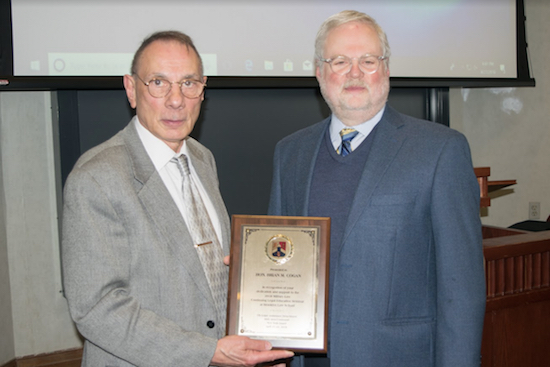Brooklyn Bar Association hosts military CLE for service members and veterans
Federal Court Judge Brian Cogan discusses the anatomy of a terrorism trial

One of the vital functions of the Brooklyn Bar Association is to provide its members with continuing legal education, as attorneys need 24 continuing legal education credits every two years to remain active.
The problem is that not all members can make it to a typical session on Remsen Street, so the association’s military law committee hosts a biennial military continuing legal education event for veterans as well as military members who are reservists or even active-duty soldiers.
“We have quite a few members who would have a hard time getting their CLE credits if it weren’t for this,” said Charles Emma, chair of the association’s military law committee. “So we do this in conjunction with the New York Guard and we get a lot of members who show up every two years.”

Brooklyn Boro
View MoreNew York City’s most populous borough, Brooklyn, is home to nearly 2.6 million residents. If Brooklyn were an independent city it would be the fourth largest city in the United States. While Brooklyn has become the epitome of ‘cool and hip’ in recent years, for those that were born here, raised families here and improved communities over the years, Brooklyn has never been ‘uncool’.